The Stained-Glass Window
By: Sana Munir and Taha Kehar
-
Rs 547.25
- Rs 995.00
- 45%
You save Rs 447.75.
Due to constant currency fluctuation, prices are subject to change with or without notice.
You could tell
the city was thirsty. If you listened carefully, you could hear it whispering
its complaint to a dry, sun-bleached, pitiless sky. Generous banyan and leafy
neem laden with thick films of dust stood as still as Druid stones. Passing
vehicles blew up puffs, which settled swiftly like a fine film on shoes, bare
feet, paws and pavements like an old threadbare blanket. Stray dogs, their
tongues lolling with each panting breath, sprawled on baking pavements. Choked
with haze, the sky descended to an arm’s length, squeezing the breath out of
everything that lived. ~ Navid
Shahzad, The Fourth Day.
But do we
really suffer from ourselves, he thought? Or is hell made for us by other
people, as Sartre wrote? Envy, malice, greed: don’t they affect us even when we
feel we are strong? He remembered the bearded white-robed faqir, rattling with
bells and green beads and chanting incomprehensible verses, who’d come to their
door in Karachi one morning. ~
Aamer Husein, The Garden Spy.
Asim and Minha teared up a little at the children's effort to put up brave faces. They wanted to embrace the children, but knew better than that. Asim sensed the tension in the room. Indeed, it was a difficult time when one had to learn how to maintain the proper etiquettes of social distancing with others, even if one lived in the same house as them. ~ Attiya Dawood, Unlearning The Ropes.
The Stained-Glass Window weaves a
tapestry of the strict lockdowns, the quandaries of quarantine and the
anxieties of isolation that have come to represent the COVID-19 era. In this
compilation, twenty-six writers of Pakistani origin present the arc of the
individual lives affected by the chaos and urgency that has gripped the country
in the wake of the health crisis. Spanning different genres and the complex
emotional journeys of a varied cast of characters, the short fiction in this collection
uses the public health scare as a catalyst to understand the power of love,
faith, hope and perseverance in coping with uncertainty.
You could tell
the city was thirsty. If you listened carefully, you could hear it whispering
its complaint to a dry, sun-bleached, pitiless sky. Generous banyan and leafy
neem laden with thick films of dust stood as still as Druid stones. Passing
vehicles blew up puffs, which settled swiftly like a fine film on shoes, bare
feet, paws and pavements like an old threadbare blanket. Stray dogs, their
tongues lolling with each panting breath, sprawled on baking pavements. Choked
with haze, the sky descended to an arm’s length, squeezing the breath out of
everything that lived. ~ Navid
Shahzad, The Fourth Day.
But do we
really suffer from ourselves, he thought? Or is hell made for us by other
people, as Sartre wrote? Envy, malice, greed: don’t they affect us even when we
feel we are strong? He remembered the bearded white-robed faqir, rattling with
bells and green beads and chanting incomprehensible verses, who’d come to their
door in Karachi one morning. ~
Aamer Husein, The Garden Spy.
Asim and Minha teared up a little at the children's effort to put up brave faces. They wanted to embrace the children, but knew better than that. Asim sensed the tension in the room. Indeed, it was a difficult time when one had to learn how to maintain the proper etiquettes of social distancing with others, even if one lived in the same house as them. ~ Attiya Dawood, Unlearning The Ropes.
The Stained-Glass Window weaves a
tapestry of the strict lockdowns, the quandaries of quarantine and the
anxieties of isolation that have come to represent the COVID-19 era. In this
compilation, twenty-six writers of Pakistani origin present the arc of the
individual lives affected by the chaos and urgency that has gripped the country
in the wake of the health crisis. Spanning different genres and the complex
emotional journeys of a varied cast of characters, the short fiction in this collection
uses the public health scare as a catalyst to understand the power of love,
faith, hope and perseverance in coping with uncertainty.
Zubin Mehta: A Musical Journey (An Authorized Biography)
By: VOID - Bakhtiar K. Dadabhoy
Rs 472.50 Rs 1,050.00 Ex Tax :Rs 472.50
Thanks, Obama: My Hopey, Changey White House Years - Paperback
By: David Litt
Rs 2,472.25 Rs 4,495.00 Ex Tax :Rs 2,472.25
Reality Is Not What It Seems: The Journey to Quantum Gravity - Paperback
By: Carlo Rovelli
Rs 2,515.50 Rs 2,795.00 Ex Tax :Rs 2,515.50
Thanks, Obama: My Hopey, Changey White House Years - Paperback
By: David Litt
Rs 2,472.25 Rs 4,495.00 Ex Tax :Rs 2,472.25
Reality Is Not What It Seems: The Journey to Quantum Gravity - Paperback
By: Carlo Rovelli
Rs 2,515.50 Rs 2,795.00 Ex Tax :Rs 2,515.50
No recently viewed books available at the moment.
Zubin Mehta: A Musical Journey (An Authorized Biography)
By: VOID - Bakhtiar K. Dadabhoy
Rs 472.50 Rs 1,050.00 Ex Tax :Rs 472.50
Thanks, Obama: My Hopey, Changey White House Years - Paperback
By: David Litt
Rs 2,472.25 Rs 4,495.00 Ex Tax :Rs 2,472.25
Reality Is Not What It Seems: The Journey to Quantum Gravity - Paperback
By: Carlo Rovelli
Rs 2,515.50 Rs 2,795.00 Ex Tax :Rs 2,515.50












/The-Stained-Glass-Window-313x487.jpg?q6)
/The-Stained-Glass-Window-120x187.jpg?q6)
-120x187.jpg?q6)





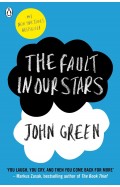
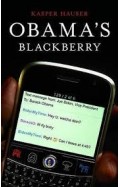
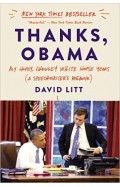
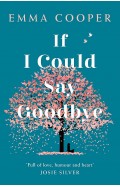
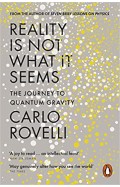
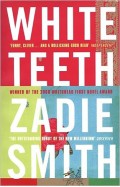

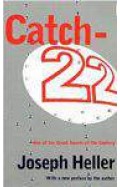

-120x187.jpg?q6)
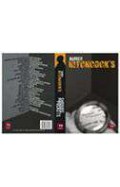
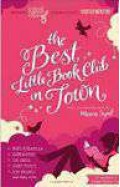
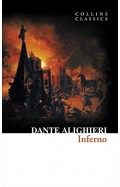
-120x187.jpg?q6)